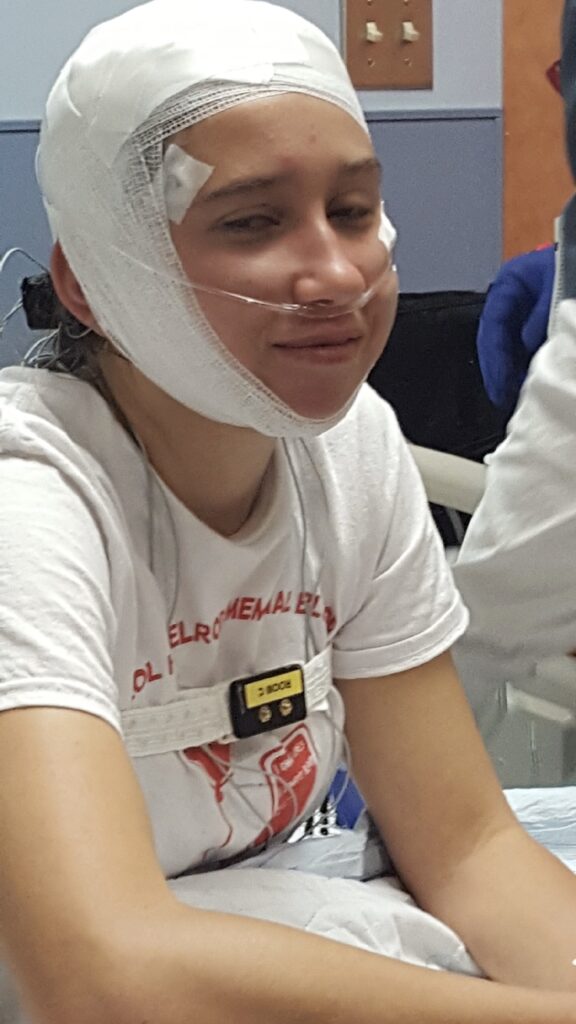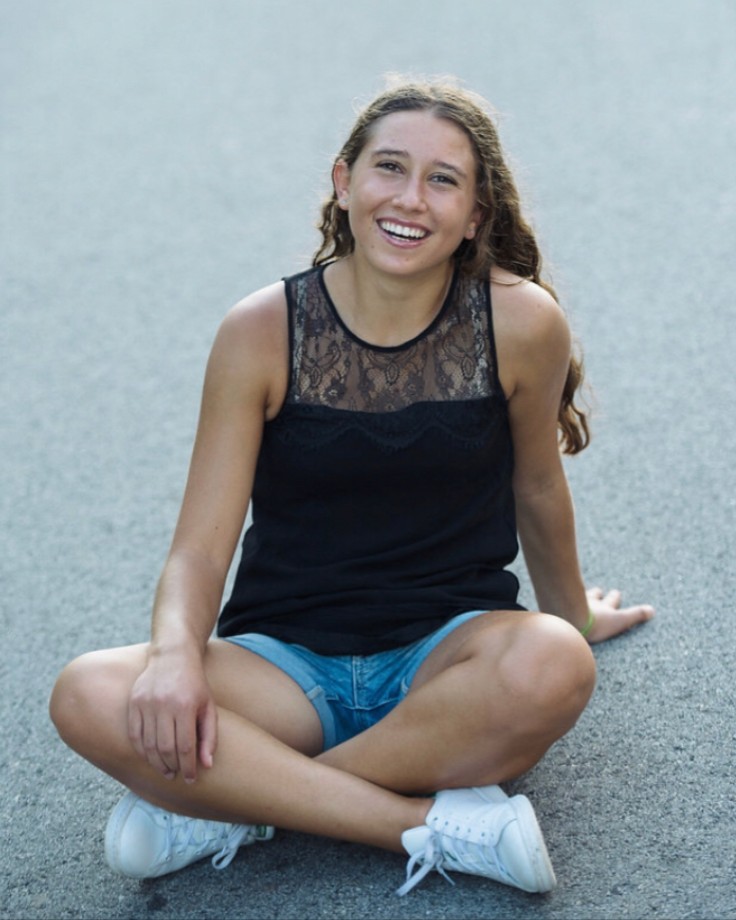This week, we are learning about neurodiversity in our community. We sat down with Claire — athlete, college student, and aspiring doctor — to learn about her experience with head traumas and the lasting effects for her brain.
Tell us a little about your journey
I got my first concussion when I was 10 years old and have had a headache every single day since December of 2009. Since then I sustained about 25 more concussions, mostly from playing soccer — the most severe one in the summer of 2015. I missed my entire junior year of high school and had to defer and transfer. I had many days in high school where I would have to leave class to vomit. I do not think I made it to consecutive classes once junior and senior years.
To this day I still struggle with a laundry list of symptoms including headaches, dizziness, nausea and vomiting, double vision, memory issues, nystagmus, fogginess, difficulty with concentration, cranial nerve palsy, tremors, balance issues, as well as others. I have also developed anxiety, depression, ADHD, and POTS as a result of the concussions. I also have mast cell disease and Crohn’s disease. Both of these can contribute to even more severe pain. I am now a junior at the University of Pittsburgh majoring in microbiology and minoring in chemistry and applied statistics. My goal is to go to medical school upon graduation. School has been a wild ride and there have been many ups and downs, but I push myself through every day because I feel I have to. I do not see another choice.
What does neurodiversity mean to you?
Neurodiversity means that our brains all work differently. If all of our brains were “neurotypical”, the world would be a pretty boring place. However, I do not even like the term “neurotypical”. I have learned through all my brain injuries that everyone’s brain looks different and no two brain injuries are alike. I think that this shows that we, as humans, all have different brains and think differently. Some differences are just more noticeable than others.
What does your neurodiversity look like?

I take medication every day to help mitigate some of my symptoms, but I still have some obvious signs that I think differently. Sometimes I need extra help really understanding and learning concepts in school. My mom and I joke that when it is easy for others, it is hard for me, but that the typically more difficult subjects are easier for me. For example, I still count on my fingers sometimes and add when I’m supposed to subtract but solving trigonometry inequalities or understanding more complex topics in physics, chemistry, and biology are much easier for me. While most of my friends are visual learners, I am very much a kinesthetic learner. I like to do example questions or draw out every step to solve a problem. Another positive of my unique brain is that I am ambidextrous. People always think that ambidextrous just means you can write with both hands, but it is so much more than that! Ambidextrous means that both the right and left sides of the brain both are working equally as hard. The left side of the brain controls logic, and linear thinking while the right side of the brain has better special and emotional awareness as well as promotes creativity. I know that this has been a huge advantage for me once I learned how to not overly confuse myself.
What challenges have you faced from environments that didn’t work with your brain?
I have very severe oculomotor dysfunction and I struggle a lot in busy places like malls or supermarkets. I also struggle with bright lights and loud sounds. Concerts and movie theatres are some of the worst environments for me. I’ll get pounding headaches and feel very nauseous and dizzy in these environments. However, in order for me to recover, I cannot totally avoid these types of places. Sometimes I have had to sit down in just some strange places but I know that each time I face a crowded space, I am helping myself to recover.
What strengths have you noticed from your “divergent” brain?
The biggest strength I have found from my experiences is that I did not go into college having never worked hard before. I had to work my butt off in high school and when I missed a year of school, my parents, doctors, and I were not sure if I would ever return to a normal classroom setting. I have clawed my way out of some very dark places. Coming into college I knew how to pick myself back up from a failure and this resilience has shown in my coursework and is responsible for much of my success.
How did Claire’s story resonate with you? What felt unique about her story as you reflect on your own journey? Let us know in our Friends in the Fight facebook group!

